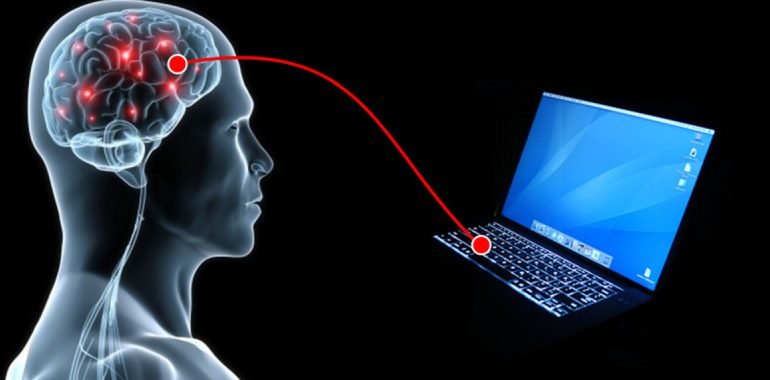Have you ever felt a sharp twinge in your back while bending, or experienced numbness radiating down your legs after sitting too long? These symptoms, though often brushed aside, could be early signs of spine disorders, a group of conditions that affect the structure and function of your spinal column.
Spine disorders are increasingly common, especially among adults with sedentary lifestyles, poor posture, or past injuries. Globally, they account for a large portion of chronic pain cases, limiting mobility and impacting quality of life.
From herniated discs to degenerative spinal issues, these conditions can manifest in subtle ways before becoming severe.
This blog will help you understand the causes, symptoms, and available treatment options for various spine disorders.
Whether you’re experiencing discomfort or just want to stay informed, our expert-backed guide will point you toward the right care—including when to consult a Spine Doctor in Electronic City or a trusted spine specialist in Bangalore.
What Are Spine Disorders?
Spine disorders refer to a range of conditions that affect the bones (vertebrae), discs, nerves, and muscles of the spinal column. These disorders can lead to pain, restricted movement, or nerve-related symptoms depending on the area and severity of the issue.
The human spine is composed of 33 vertebrae stacked vertically, serving to support body posture and movement while shielding the spinal cord from injury. Learn more about spine anatomy here. When this delicate structure is disrupted—whether through age-related wear and tear, injury, poor posture, or inherited conditions—it can lead to discomfort and even long-term disability.
Common causes of spine disorders include aging, sedentary lifestyles, spinal injuries, and genetic factors. These conditions may develop gradually or appear suddenly after physical strain or trauma. Understanding what causes them is the first step toward effective prevention and treatment.
Types of Common Spine Disorders
Spine disorders differ greatly in terms of their symptoms, underlying causes, and how severe they can become.
Below are some of the most commonly diagnosed conditions, each with its own set of signs and recommended approaches for care.
Herniated Disc (Also Known as Slipped Disc)
● When the inner portion of a spinal disc protrudes through a weakened section of its outer shell, it results in a herniated disc.
● It often causes back pain, numbness, or tingling, especially if the disc presses against nearby nerves.
● Common causes include lifting heavy objects improperly, sudden twisting movements, or wear-and-tear over time.
● If pain radiates down your arms or legs, or you experience muscle weakness, it’s time to consult a spine specialist.
Spinal Stenosis
● Spinal stenosis refers to the tightening of spaces in the spine, which can put pressure on the nerves passing through them..
● Typical symptoms include leg cramps, numbness, or stiffness in the lower back, especially while walking or standing.
● It is more common in older adults and is often caused by arthritis or disc degeneration.
● Starting physical therapy soon after diagnosis can relieve discomfort and help slow the progression of the condition.
Degenerative Disc Disease
● This age-related condition develops as the intervertebral discs gradually lose their moisture and flexibility.
● It may cause chronic lower back pain, restricted movement, or episodes of sharp pain.
● Though it sounds severe, degenerative disc disease is a natural part of aging and can often be managed through lifestyle changes, physical therapy, and minimally invasive treatments.
● Severe cases may require consultation with a spine doctor in Electronic City for evaluation.
Scoliosis & Kyphosis
● These conditions involve abnormal spinal curves—scoliosis leads to a sideways bend, whereas kyphosis causes the upper back to round forward.
● Both can be seen in children or adults and may present as uneven shoulders, back pain, or visible spinal deformity.
In mild cases, regular monitoring is enough; severe cases may require bracing or surgical correction from a neurosurgeon in Bangalore.
Early detection is key to preventing long-term complications.
Treatment Options for Spine Disorders
- Conservative Treatments
- Most spine issues can be managed with non-surgical methods like:
- Physical therapy
- Posture correction
- Lifestyle and activity modifications
- Most spine issues can be managed with non-surgical methods like:
- Use of Braces or Support Devices
- In select cases, doctors may recommend:
- Back or neck braces
- Support devices to reduce spinal strain
- These aids help stabilize the spine and accelerate healing
- In select cases, doctors may recommend:
- Advanced Non-Surgical Procedures
- When initial treatments don’t offer enough relief, the next step may include:
- Epidural steroid injections to reduce inflammation
- Minimally invasive procedures to relieve nerve compression
- These methods restore mobility with minimal recovery time
- When initial treatments don’t offer enough relief, the next step may include:
- Surgical Treatment
- Surgery is usually the last resort, only considered when:
- There is significant nerve compression
- The spine becomes unstable
- Spinal deformities cause persistent pain or disability
- Surgery is usually the last resort, only considered when:
If you’re facing ongoing symptoms despite treatment, it’s essential to consult a specialist. For expert care, we recommend booking a consultation with a trusted neurosurgeon in Bangalore—like Dr. Ganesh Veerabhadraiah is recognized for his specialization in advanced spine surgery techniques.
Book a consult with Consult Dr. Ganesh Veerabhadraiah to begin your journey toward lasting spinal wellness.
Spine Care Tips to Prevent Future Issues
Taking simple steps every day can go a long way in protecting your spine and avoiding chronic issues down the line.
- Start by practicing proper posture—whether you’re sitting at a desk or lifting objects at home.
- Regular posture correction helps reduce strain on your spine and supports long-term alignment.
- Incorporating gentle exercises like stretching, walking, or yoga can also strengthen the muscles that support your back.
- Aim for consistency over intensity, and don’t ignore stiffness or pain—these can be early warning signs. If needed, seek an orthopedic consultation to tailor a routine that suits your spine condition.
- Quality sleep is just as important. Choose a supportive mattress and try to sleep on your side with a pillow between your knees to maintain spinal alignment.
For more personalized spine care tips, especially if you travel often, check out our guide on Tips to Travel with Spine Problems.
Conclusion
Spine disorders, if left unaddressed, can lead to chronic pain, reduced mobility, and a decline in overall quality of life. Recognizing symptoms early and seeking timely care can make a significant difference in treatment outcomes.
If you’re experiencing back pain, stiffness, or nerve-related discomfort, it’s important to consult an experienced specialist. Our team is led by a trusted spine doctor in Electronic City, offering personalized care backed by years of expertise in diagnosing and treating complex spinal conditions.
Facing symptoms? Book an expert consultation with a spine specialist today and take control of your spinal health before it progresses.
FAQs:
1. What are the initial signs that may indicate a spine disorder?
Initial symptoms of spine disorders often involve ongoing neck or back pain, limb numbness or tingling, muscle stiffness, or general weakness. If symptoms worsen or affect daily life, it’s best to seek medical advice.
2. Can spine disorders be treated without surgery?
Yes, many spine disorders can be managed through non-surgical treatments such as physical therapy, posture correction, and medication. Surgical intervention is typically recommended only when non-invasive treatments do not bring sufficient relief.
3. When should I see a spine doctor in Electronic City?
If you’re experiencing continuous back pain, discomfort while walking, or symptoms like numbness and tingling, consult a spine doctor in Electronic City to get a proper diagnosis and treatment plan.
4. What is the difference between an orthopedic doctor and a neurosurgeon for spine care?
Orthopedic doctors handle bone and joint conditions, while neurosurgeons in Bangalore are trained to treat spinal cord and nerve-related issues. The most suitable option depends on the specific nature of your condition.





Comments are closed.